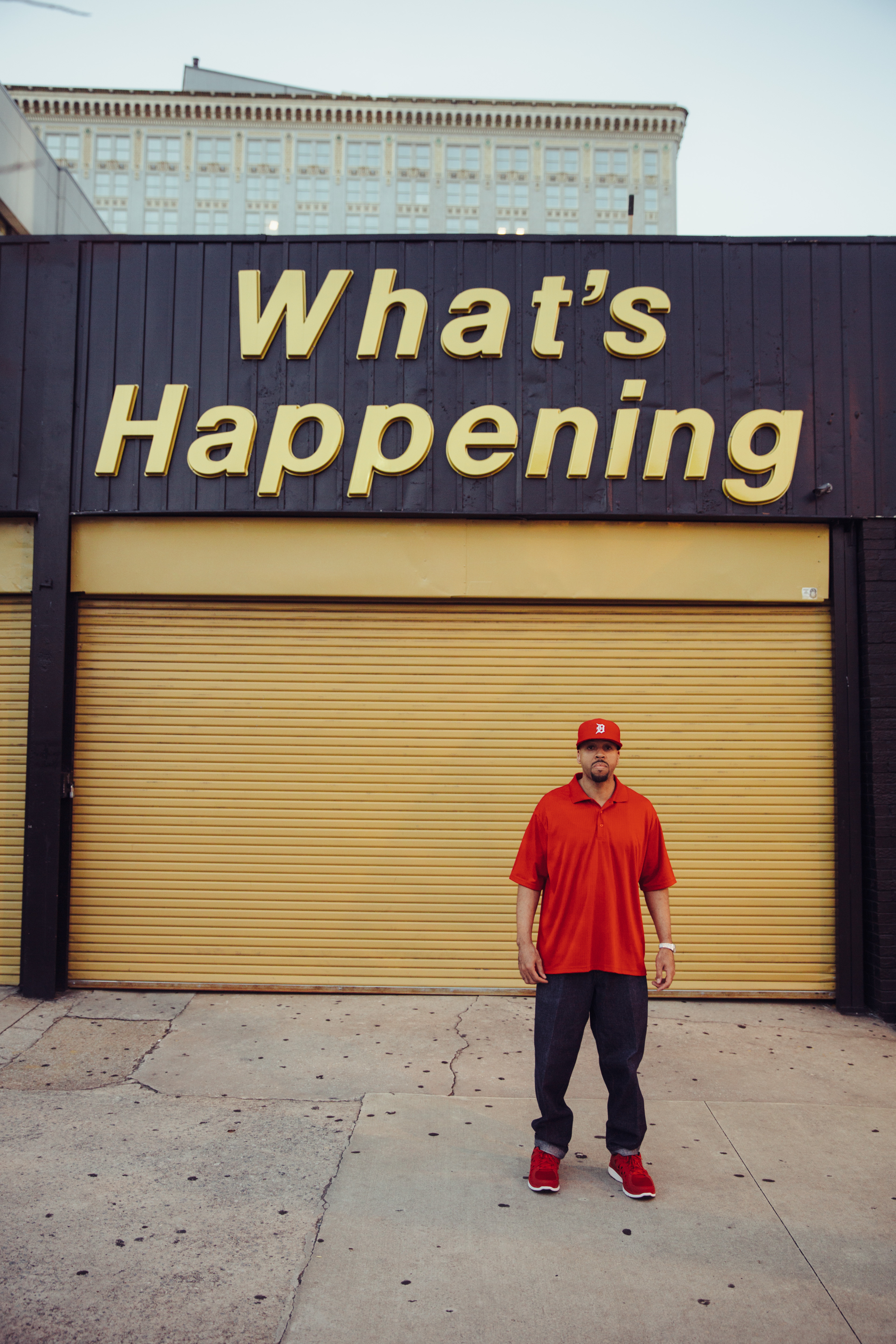O — Do you think that group was still a stepping stone for you towards your solo career?
DJA —You can look at it like that. In a lot of ways I wish I was able to recognize people and their tendencies and personalities quicker. Because some stuff is a stepping stone, and some things is a waste of time. That’s the way I see it now.
O — So at what age were you starting to perform and flex your skills?
DJA — Well, I’ve been in talent shows since middle school, to be honest. Like sixth grade. People never see the stage performer, per se, usually I’m just performing as a DJ. But I’ve been literally doing stage performances of music since middle school. I was rapping—I wish I’d played instruments. Like now, I play piano, and I think I’m going to teach myself guitar within the next couple years. I’m pretty much self- taught. It’s just necessary, to understand music. It’s a natural progression, to understand stuff you hear, stuff you like, to understand how the notes were put together. It’s just about how far you want to go with it. When I was learning about samples, that was cool. To me samples aren’t really cool anymore, if you don’t really own it I don’t think, from a business standpoint it doesn’t make sense to sample. That’s an argument people will have. As a real businessperson, knowing the industry, I don’t want to clear your sample and pay you the publishing, when it’s for my record. It just doesn’t make sense.
O — When was it you were first exposed to booty music?
DJA — Well I have to give credit to the real Detroit people that started it. You know, how I heard The Wizard on the radio at the time, and then I knew about stuff like Model 500, Juan Atkins’ group, Kevin Saunderson had some big records. I don’t really want to skip people, I’m skipping people, but you know, those guys who came before me pretty much that was something mixed all together for me. Hearing them, the Detroit techno, I loved a lot of Chicago house, but I also wrote lyrics. I was rapping at ten, writing. Oh and then of course, with the bass and booty music, it was really Atlanta and Miami, and I was hearing that. So everything that I was influenced by went into what I did, my sound, which was original for Detroit at the time. I guess it was different, but it was me trying to find my way more so, with that booty music they refer to. Everybody want to take credit for the stuff, but I had those records before I even had a label, when I wasn’t getting paid to make music, so... Not that I care about the credit, but just to be accurate, they want to talk about pioneer this, who came up with this and that, and lump people into the same place, which I don’t think nobody else can be mentioned to be honest. That’s what I would say, as a public statement to anyone. If you’re talking out there Detroit booty music, ghetto music... People imitated me, that’s why I never played their records. I don’t need to. To this day. My songs are enough at my show, to not play the people that imitated my music. Imitation is not a form of flattery. To me. The industry is just fake, it’s very fake. So I’m just more about the fans, the people that’s into the music. It’s a big competition, which it really shouldn’t be. No one is really trying to work together anyway, unless someone is robbing someone, you know? It’s a shame, but it’s the truth. It’s not cynical, it’s unfortunate that artists will do anything to get to where they want to go, but then you pay the price. If you just educate yourself on how evil people are in the music industry you just avoid it. Nothing beats working hard for it, but people want to take the easy way out. I don’t believe in stars. Nobody’s a superstar to me, it’s just people.
O — So were you comfortable gaining popularity and visibility in Detroit and beyond? Or did you have to take precautions to not get taken advantage of?
DJA —Well I’m pretty much my own person, and I don’t care about a reputation or anything. So no one could change me into anything. What I do think—it was a lot of opportunists, and people that I thought were trying to help me, but it was for their own benefit, they really wasn’t helping me. People won’t admit it, but I made a lot of mistakes, business-wise, as I was growing and becoming bigger. I was just so happy to be able to make money off of music, and not have to work a job. So I thought ‘Oh, everybody is happy for me, and everybody is nice and wants to work with me, or help me,’ but that’s not the case, there’s a lot of opportunists. That was me being naïve. The horror stories are just from people signing stuff they had no business signing. Bottom line. That’s the whole music industry in one sentence.
